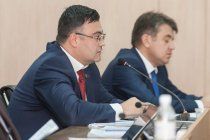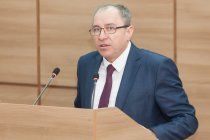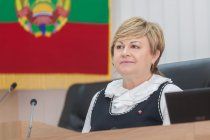 Русский
Русский English
English-







One was supported, the other rejected
Constitutional amendments was the first item on the agenda. A group of deputies of the Supreme Council, consisting of 17 people, appeared with a legislative initiative aimed at changing the constitution of the republic. The legislative initiative during the plenary session was presented by one of the authors - the head of the profile parliamentary committee on legislation Galina Antyufeeva. The essence of the law-in-draft is to clearly identify the place of various officials, structures on behalf of the state exercising authority, in the hierarchy of state power. These include: the president of the republic, the Supreme Council, the government, the courts (Supreme, Arbitration, Constitutional), the prosecutor's office, the PRB, the CEC, the Accounts Chamber, the Human Rights Ombudsman. The made by the legislators decision does not mean that these structures are assigned to one or another branch of power, which according to the Basic Law are three - legislative (Supreme Soviet), executive (government) and judicial (courts).
All 39 deputies who took part in the plenary meeting voted for constitutional amendments.
The joint initiative of the Supreme and Arbitration Courts was rejected by them. Representatives of the judicial branch proposed to deprive the prosecutor's office of the power to demand cases from civil and administrative law courts. According to the chairman of the Supreme Court Vladimir Rymar, the current legislative norm (the deputy corps gave it to the prosecutor's office more recently) contradicts the constitutional principle of competitiveness and equality of participants in the trial.
The prosecutor of Pridnestrovie Anatoly Guretsky assesses the presented legislative initiative as discordant with a general tendency to return to the body overseeing the observance of legality the previous powers.
The expressed opinion was supported by the majority of parliamentarians, having rejected the initiated by the Supreme and Arbitration court law-in-draft.




